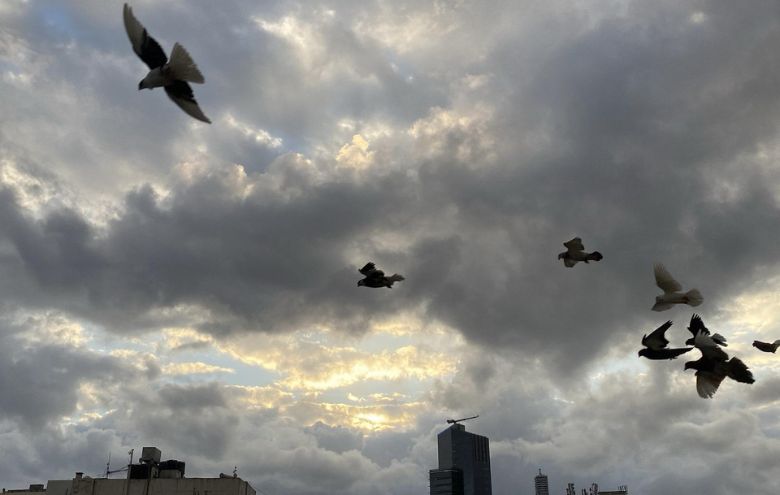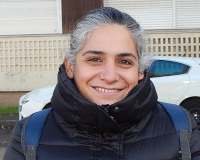Walking Alongside People in Poverty

Maya Aoun is Lebanese and an ATD Fourth World Volunteer Corps member. From 2017 to 2019, she worked with Beitouna and the Insan Association. She joined the ATD Fourth World Volunteer Corps in 2019 and presently works in Montreal.
This article was first published in French in Revue Quart Monde N°269.
By Maya Aoun
In Beitouna

When I took part in the camp, I was responsible for the food products and preparing dishes in the kitchen. I thought I was there to give to people in need, however, Sister Thérèse (the co-founder of Betounia), shared a different perspective:
“You shouldn’t give people everything they ask for. On the contrary, you must guide them and give them the tools they need to manage their lives themselves”.
Sister Thérèse (the co-founder of Betounia)
She taught me that “all human beings are equal in terms of dignity, regardless of their living conditions” and that “anyone who offers an act of charity has no right to feel superior to the person living in poverty”.
In 2017, I took over from Sister Thérèse at Beitouna. I lived and spent time with families living in poverty, and I learned a lot from them, about their lives. They taught me what it means to walk beside them every day, and they showed me what they go through.
I once went to visit a mother and her two daughters: one was 2 years old, and the other just a few months old. We met in the street and went to the chemist together. I carried the younger daughter while the mother held her 2-year-old daughter by the hand. The street where she lived was crowded with people. Her clothes were old and dirty, and I saw how people looked at her, with eyes full of judgment. Living with people in poverty means facing these kind of situations, and walking alongside them means standing up to the lack of respect shown towards them. We work to change these attitudes.
Through my involvement with Beitouna, I met ATD Fourth World. Their values appealed to me because I hadn’t experienced anything like them in other organizations where, in my experience, people were seen as numbers and beneficiaries. The values of ATD Fourth World resonated with me, and I decided to join the Volunteer Corps.
After spending some time in Beirut as a Volunteer Corps member, I prepared to move to France for a training course. This required getting a tourist visa, which wasn’t an easy process, and my application for a long-stay visa was ultimately rejected because I was missing a document on the list. Despite ATD Fourth World’s efforts to ensure that all Volunteer Corps members have access to the same opportunities, I realized that there are certain opportunities that are inaccessible to certain people because of the passport they might hold. So, I was forced to change my destination.
Then in Quebec…
In 2023, I moved to join ATD Fourth World’s Canadian team in Montreal. I noticed differences between the poverty experienced in Canada and that experienced in Lebanon. Montreal is very different to where I am from: in the culture, the language, and above all, in the individualism of the society.
Nevertheless, I saw small gestures of solidarity. In a food bank I volunteered at, for example, I once saw a young man struggling to walk home with all his things, as his family was very heavy. A mother who had come to collect her own provisions drove up the same street as the young man, and I said to myself: “She’s going to stop! She’s going to stop!”. And she did: she stopped and offered him a lift.
The freedom to commit
For me, being a Volunteer Corps member is a way of life, not a job.
“Walking with people” is neither a supervised nor a defined role: it’s a lifestyle where, every day, you’re invited to learn from the people you live with.
However, to be able to commit to ATD Fourth World in this way — and to not fall into the trap of choosing to be a member as if it were a job — people must first be free.
As ATD Fourth World is an international movement, Volunteer Corps members have different countries of origin, which means that we are not necessarily “equal” in the eyes of different governments and borders, and in the rights we have access to. Nonetheless, within ATD Fourth World equality between members is paramount. So, how do we move forward and reflect together on the challenges and commitments that our countries impose on us?
Passing on the spirit of ATD Fourth World to Lebanon
These days, I feel torn between my desire to be an international Volunteer Corps member with ATD, and my concern for the people of my native country. I know that there are many organisations working in the social field in Lebanon, and I’ve been lucky enough to be in contact with several of them. However, they often lack the ability to see people living in poverty as individuals who have knowledge to teach, and they don’t always understand that the value of each person is measured in who they are, not in what they have.
I would like to pass on the ethos that I have developed with ATD Fourth World to Lebanon, and find an opening for ATD in the Arab world. In the Middle East, there are many people living in poverty, and ATD’s presence in Lebanon would enable further progress in our mission of overcoming poverty across the world.

